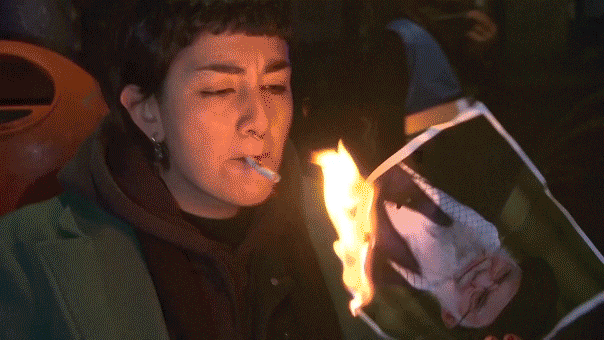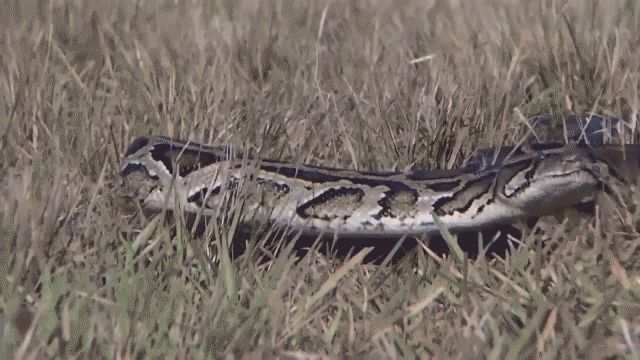BEIRUT – Two weeks into a cease-fire agreement, there still was no peace in Syria: Security agents in Damascus collected the remains of 10 people killed in a suicide bombing. Activists reported troops firing on protesters. Video showed a crowd carrying a slain boy to U.N. observers as proof of regime violence.
The head of the United Nations said Syrian President Bashar Assad's continued crackdown on protests has reached an "intolerable stage," and that the U.N. will try to speed up the deployment of up to 300 monitors to Syria. Only 15 are there now.
"The government of Syria must live up to its promises to the world," U.N. Secretary-General Ban Ki-moon said Friday.
Tens of thousands of people poured into the streets across Syria for weekly anti-regime marches after Muslim noon prayers Friday. Amateur video from the central city of Homs, where the presence of U.N. observers helped halt weeks of artillery attacks, showed rows of men lining up in a main street, holding each other by the shoulders as they sang and danced.
In another protest, people held up 45 squares of cardboard with writing and drawings that — when viewed together from above — showed a picture of Assad and the words "oppression, corruption, despotism, demolition." When they simultaneously flipped over the squares, it created a new message that read: "Toward a modern society that is more developed and sensible."
Troops have routinely opened fire on protests since the uprising against Assad began 13 months ago, but there appeared to be fewer violent incidents Friday than in previous weeks. Still, the Britain-based Syrian Observatory for Human Rights said five protesters were killed by fire from the security forces, including a 10-year-old boy.
A plan brokered by special envoy Kofi Annan proposed an April 12 cease-fire, to be followed by talks between the regime and the opposition. Since that date, the U.N. has said the regime has broken many of its truce promises, such as withdrawing forces from towns and cities. Rebel fighters have also kept up shooting and bombing attacks on Syrian security forces.
With the U.S. and France in the lead, Western powers have threatened tougher U.N. Security Council measures if Assad keeps breaking his promises, although Syria's allies Russia and China could use their veto powers in the council to shield him.
British Foreign Office Minister Alistair Burt said his government will seek "robust action" in the council if Syria doesn't comply with Annan's plan.
The suicide bomber in Damascus detonated an explosives belt Friday near members of the security forces, killing at least nine people and wounding 26, the state-run news agency SANA reported. The remains of two other people also were found, one believed to be the bomber, according to Health Minister Nader al-Halqi. The minister said seven police were among the dead.
The blast went off near a mosque in the downtown Midan neighborhood, an area of opposition sympathizers. The government said it would use an iron fist against those "who might intimidate residents and spread anarchy in the country," SANA reported.
Video on Syrian TV showed white smoke billowing from under a bridge as people streamed out of a mosque. The streets were stained with blood.
An Associated Press reporter saw remains of the dead in the street and a police bus with shattered windows. As police cordoned off the area, security agents wearing gloves collected the remains from the street and piled them onto a sheet.
Anas Haqqi said he was walking with his father when the bomb went off. "I fell on the ground," said the 13-year-old, who was being treated for shoulder and leg wounds at Mujtahid hospital.
Three smaller explosions elsewhere in the capital killed one person.
In recent months, there has been a string of bombings in Damascus and elsewhere. The regime blamed Friday's attack on unspecified "terrorists" — the term it uses to describe opposition forces that it says are carrying out a foreign conspiracy. Opposition activists deny any role, saying such blasts are carried out by government forces and meant to tarnish Assad's opponents.
Some U.S. officials suggested after previous bombings that al-Qaida militants may be joining the fray.
The bombings posed the latest challenge to attempts to end the Syria crisis; the uprising began with largely peaceful protests but has turned into an armed insurgency in response to a relentless regime crackdown.
Ban said he was "gravely alarmed" by the continued killings. He said he hopes the speedy deployment of all the truce monitors "will change the dynamics on the ground," but that violence must stop even before the full contingent of 300 gets to Syria.
A small advance team that has been on the ground since mid-April is often greeted with both hope and frustration by residents.
In the southern town of Daraa, the birthplace of the uprising, amateur video posted online showed two white U.N. Land Cruisers surrounded by people Thursday evening. At one point, people close to the vehicles lift up the body of a boy said to have been shot to death by Syrian troops.
Others jumped on one of the U.N. cars, or banged on it with their fists. Yet others formed a cordon to try to protect the observers.
In another town, residents welcomed observers as effective shields against regime attacks.
On Friday, the U.N. secretary general appointed a former Norwegian army chief, Maj. Gen. Robert Mood, as the head of the expanded observer mission. His Middle East experience includes a stint with U.N. peacekeepers in Lebanon in 1989-1990 and heading the first U.N. peacekeeping mission in the region known as UNTSO from 2009 to 2011. It was established after the 1948 Arab-Israeli war to monitor a cease-fire and now operates as an observer mission.
Annan's spokesman Ahmad Fawzi said he hopes the group of 15 monitors will grow to 25 by Monday, with 100 there by mid-May.
For now, the team is stretched thin, with two monitors each deployed in four major flashpoints: Homs, Daraa, the central city of Hama and the city of Idlib in the northwest, said a team spokesman, Neeraj Singh.
___
Associated Press writer Albert Aji in Damascus contributed reporting.








































